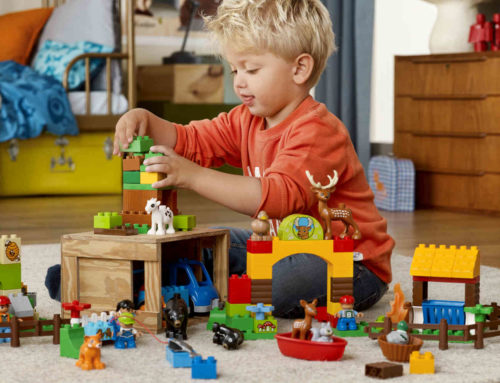Is your child ready for school? It’s a question that can strike fear into the heart of any parent. Are they? Yes! No! I think so but now I’m not sure! Should I send them? Should I hold them back? It’s enough to make you tear your hair out!
But what if you don’t have a choice? What if you know that your child isn’t ready but due to their age, holding them back another year isn’t an option? Whether they are ready or not, they have to go. This is the reality for many families and it can be very frightening. The main thing is not to panic and not to give up. There’s still a lot you can do to help your child before they get to big school!
What is school readiness?
The first year of formal schooling has different names depending on where you live. Whether you call it Kindergarten, Prep, Reception, Foundation or Pre-Primary, most of us are keen to ensure that our children are ready for what lies ahead.
When thinking about “school readiness”, many parents believe they need to focus on practising their child’s “academic skills” such as knowing the alphabet, counting and writing their name. However there are many other factors (arguably more important factors) to consider and encourage first, such as speech and language skills, gross motor skills, fine motor skills, problem solving and conflict resolution skills. By encouraging and targeting these areas you will be helping your child become physically, socially and emotionally ready for the transition to school.
Please understand that I am not trivializing the “academic skills”. If your child does know their letters and can count and write their name then these things should be celebrated! The point I am trying to make is that knowing these things does not automatically result in a successful transition to school. Particularly when there are other important issues that may have been overlooked.
For instance, although a child may know all the letters of the alphabet, they are still going to struggle if they experience anxiety that leaves them unable to speak in front of others. The fact that a child can write their full name is not going to help them when they are unable to follow 3 step instructions such as, “First unpack your bag, then hang your hat on the hook before you come and sit quietly on the mat”. Being able to count to 100 is not going to make it any easier for a child to independently open and close their school bag and lunchbox.
There is more to school readiness than letters, numbers, colours and shapes. Much more. Try as best as you can to keep your eye on the big picture!
You can read our previous post Language Impairment – The “hidden” learning disability to find out more about how speech and language skills significantly impact a child’s ability to learn.
Don’t “wait and see”
If you have any concerns at all about how your child is going to cope in “big school”, do not keep quiet and wait to see how they go once they get there. When it comes to starting school, preparation is important for everyone involved. This includes the parents, the teacher, the learning support team, the school counselor, the school principal and most importantly the child. The earlier everyone is on the same page the more successful your child’s transition will be!
Who can help?
There is an army of people primed and ready to help. Depending on your child’s needs you may cross paths with Speech Pathologists, Occupational Therapists, Physiotherapists and Psychologists. If your child has a particular issue and you aren’t sure who might be able to help, just pick up the phone or send an email and ask. It’s that simple. Most allied health professionals are used to working collaboratively. We often refer to each other so should be able to point you in the right direction. You may actually be surprised to discover all the various ways allied health professionals can help. After all, speech pathologists can do more than treat stutters and lisps, occupational therapists can do more than work on pencil grips, physiotherapists can do more than treat sports injuries and psychologists can do more than talk about feelings!
A word of caution, tread carefully with organisations, professions and people that claim they can single handedly “fix” all of your child’s issues and more in one fell swoop. Fancy words and/or fancy contraptions may seem appealing, but a solid evidenced based approach is what you need. If it seems too good to be true it probably is!
There are free services available!
Children are expensive little people! You need to provide a roof over their heads, clothe them and they never seem to stop eating! So the idea of paying several hundred dollars for an assessment is an immediate “No Go!” for many families.
Fortunately, there are free services available (depending on where you live) and most of these are aimed at helping children before they start school. These services may be provided by the government (e.g. Community Health Services) or by charities and other not for profit organisations. These services are limited and usually have a waiting list.
If you can’t or don’t want to wait, private clinicians may be able to offer you an appointment sooner however they do charge a fee for their services. If your child is eligible you may be entitled to receive Medicare assistance for a limited number of sessions. For more information speak to your allied health professional or your family doctor. If you have private health insurance, you may also be able to make a claim depending on your particular policy and level of cover. For more information please contact your health fund.
I don’t want my child to be labeled
Some families may avoid a formal assessment of their child’s development prior to starting school, as they are genuinely concerned about them being “labeled”. I understand this fear because let’s be honest, labels can stick. The thing is, unfortunately children are often labeled anyway. Words such as “hyperactive”, “disruptive”, “lazy”, “forgetful”, “shy”, “aloof”, “slow” and “strange” can be just as influential as terms such as “Developmental Delay”, “ADHD”, “Aspergers”, “Selective Mutism” and “Autism”.
If your child had difficulty remembering and understanding certain instructions (i.e. a receptive language skill) and as a result did not do what the teacher asked, would you rather your child be incorrectly labeled as “defiant” or correctly identified as having a “receptive language impairment”? I know which one I would choose!
As a speech pathologist, my main concern when assessing a child’s speech and language skills is to identify their strengths and weaknesses. This is so we can work together to make a plan about how we are going to help and support the child. In my mind it doesn’t really matter whether the “numbers” indicate a mild, moderate or severe level of difficulty. What’s more important are the strategies we put in place to help them overcome these difficulties such as, using visual supports to help them remember and follow multistep instructions, ensuring their teachers know to allow the child more time to process a question before answering, or providing a scaffold to help them understand where adjectives fit in a sentence. This is what an assessment is really about.
Why does something have to be “wrong”? Can’t my child just be “different”?
We know that every child is different and will have their own unique set of strengths and weaknesses. It is a wonderful thing to teach our children to accept others for who they are and to embrace differences, as no one is perfect. However, we need to be careful when we acknowledge a child as being “different” that it doesn’t stop us from seeking further professional advice. If a professional assessment reveals that your “quirky” little one is on the right track but likes to do things in their own special way, then there’s no problem. If not, some intervention may be recommended. Intervention is not intended to create little clones who think, talk and act the same. Rest assured their wonderful quirkiness and individuality will be preserved.
Remember…
When planning for your child’s transition to school it is important to be positive, yet also realistic. Not every child can be top of the class and ultimately, someone is going to have to get the lowest score or come last. That is ok. The most important thing is that your child feels safe and secure and has the ability to join in and participate in order to have fun and learn.
If you are concerned that your child is not ready for school, you should seek help as soon as possible. The sooner you find out the best ways to support and empower your child, the sooner you will be able to set up a plan for a smooth and successful transition to school.
Good luck!
Don’t forget to Like Modern Speechie on Facebook for more information and tips to help children be the best communicators they can be!






